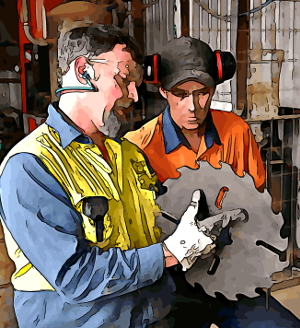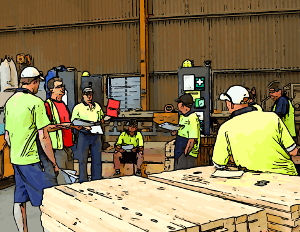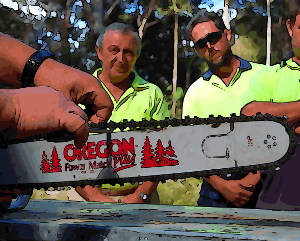Overview and contents

The material contained in this website has been written by Workspace Training to support its non-accredited course: Training and Assessing for On-the-job Trainers.
We originally developed the material for our delivery of the TAA40104 Certificate IV in Training and Assessment. We updated the material when we transitioned to the TAE40110 Certificate IV in Training and Assessment.
Since then, we have updated certain parts of the course several times, to stay abreast of the relentless changes and upheavals that have occurred over recent years in the VET system, particularly in relation to government policies, administrative agencies and compliance requirements.
When the TAE40110 qualification was superseded by the TAE40116 Certificate IV in Training and Assessment, we planned to submit an application to ASQA (Australian Skills Quality Authority - the federal regulator) to upgrade our scope of registration to include this new qualification. But when we looked at the onerous compliance requirements and increasing focus on rules and regulations, we decided to take a step back and ask ourselves whether this new qualification was really meeting the needs of the nuts-and-bolts trainers in industrial workplaces. The answer was 'No'. So we didn't submit an application to ASQA after all.

Fortunately for us, many of the enquiries we have been receiving from clients in recent times have come from industrial employers who are already moving away from the whole notion of 'nationally accredited training'.
We are regularly hearing the complaint from employers that even after their production workers have completed a formal traineeship or skill set, they still lack the hard-edged skills and knowledge needed to do their jobs properly. We also hear from the workers themselves that their competency-based courses are often padded out with excessive generic material and repetitive information.
Obviously, accredited training will always be needed for jobs that require trade certifications, high-risk licences or other forms of proof that the worker has met industry-recognised standards of performance. But there are many workplace-specific skills that are best taught by the company's own expert operators. When this sort of training is done in an organised way and documented properly, it can carry all the weight of an accredited course, and be equally recognised by external bodies such as WorkCover and workers compensation insurers.
The clients who are approaching us for help to develop their own 'in-house' training programs are no longer asking for paper qualifications or accreditations to hand out to their workers. Rather, they are looking for job-specific skills training that is tailored to the precise needs of their business and employees. The face-to-face trainers are generally selected from the company's own personnel, and include factory supervisors and key operators. They still want to retain rigorous assessment procedures, but are now free to determine their own benchmarks of performance, which can be as demanding and focussed as they like - generally more demanding than the corresponding national competency would be.
In response, we have modified our trainer/assessor course to meet the needs of companies that are managing their own in-house training programs, using their own expert operators as trainers and assessors. Gone are the government-mandated compliance requirements, and in their place are fully customised workplace-specific outcomes, as specified by the employers.

Having said that, we acknowledge that many trainers and assessors still need to be qualified in the current nationally-recognised TAE qualification - either the TAE40110 or the TAE40116.
One reason for this is that where workers require formal accreditations in national competencies, the assessments must be conducted by a qualified assessor. Another reason is that many trainers need to provide formal evidence to their employer that they have attained the skills and knowledge expected of a professional workplace trainer and assessor.
So the course we now deliver is loosely aligned to the new TAE40116 qualification, which allows trainers to enrol in the TAE40116 at a later stage if they wish and apply for 'recognition of prior learning' for at least some aspects of the accredited qualification. But because we are not tied to the formal qualification, we are able to tailor our course to the exact specifications given to us by the client, with as much emphasis on particular topics (and bypassing of other topics) as the client requests.
We are also able to build a customised version of the trainer/assessor course into a larger learning and development program for a worksite, to produce an integrated approach to improving workers' skills through in-house training and assessment processes.
If you are an employer or learning and development manager reading this now and wish to explore the possibilities of non-accredited site-specific training further, please contact David McElvenny on 0403 570 673 or david@workspacetraining.com.au.
Contents of Introduction section
The pages in this section are as follows:
- Overview and contents
- Training industry workers
- Resource structure
- Glossary

